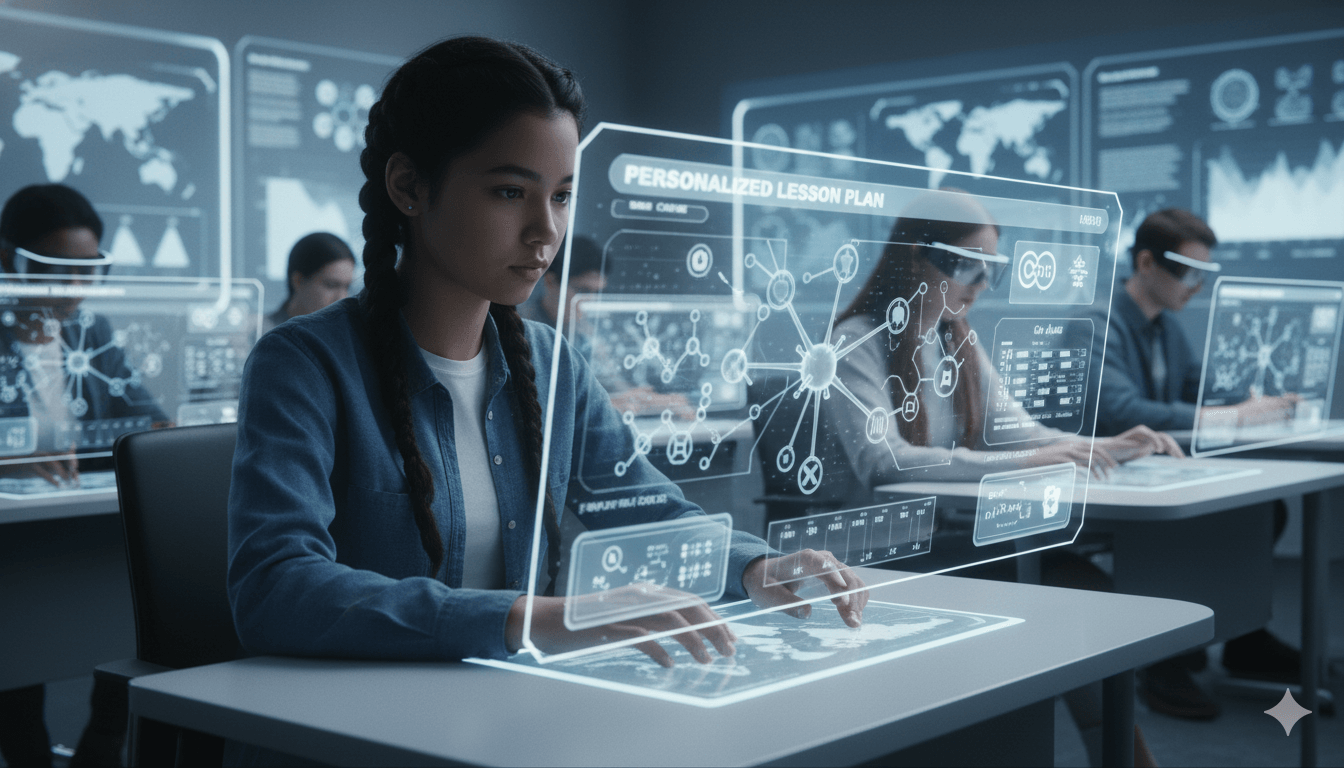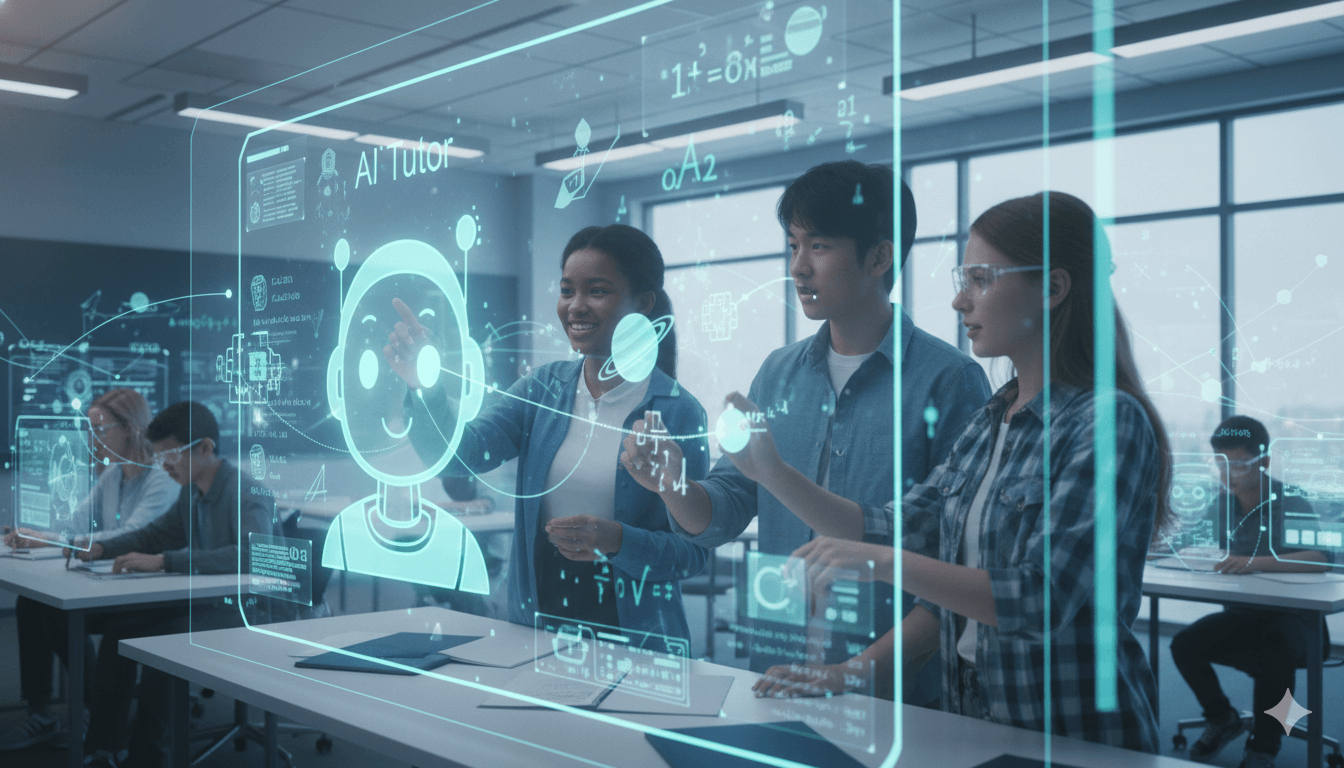Artificial Intelligence (AI) is reshaping education in 2025, creating intelligent classrooms and personalized learning experiences. By analyzing student data, learning behaviors, and performance metrics, AI enables adaptive learning, real-time feedback, and efficient resource allocation, transforming traditional education into a highly engaging and effective system.
1. Adaptive Learning Platforms
AI-driven adaptive learning platforms tailor educational content to individual students. By analyzing learning patterns, strengths, and weaknesses, AI customizes lessons, exercises, and assessments, optimizing knowledge retention and skill development.

2. Intelligent Tutoring Systems
Intelligent tutoring systems provide one-on-one guidance, offering explanations, hints, and feedback in real time. AI tutors simulate human instruction and adapt to student progress, improving understanding and engagement.
3. AI in Classroom Management
AI assists educators in managing classrooms by monitoring attendance, participation, and engagement. Smart cameras and sensors detect attention levels, helping teachers identify students who may need extra support.

4. Predictive Analytics for Student Success
AI predicts academic performance and identifies at-risk students early. By analyzing grades, behavior, and learning habits, AI enables timely interventions, personalized support, and improved retention rates.
5. AI and Lifelong Learning
AI supports lifelong learning by providing personalized recommendations for courses, certifications, and skill development based on career goals and industry trends. Continuous learning is facilitated through intelligent learning platforms and AI-driven career guidance.

6. Virtual Classrooms and AI Collaboration
AI enhances virtual classrooms with intelligent content delivery, automated grading, and real-time language translation. Collaborative AI tools allow students and teachers to interact seamlessly across borders and time zones.
7. Gamification and Engagement
AI-powered gamification boosts engagement by tailoring challenges, rewards, and progress tracking to each student. Gamified learning enhances motivation and retention, making education more interactive and fun.

8. Teacher Support and Administrative Efficiency
AI assists teachers by automating administrative tasks such as grading, scheduling, and lesson planning. This allows educators to focus on instruction, mentoring, and fostering critical thinking.
9. Ethics and Data Privacy in AI Education
AI in education raises ethical concerns regarding data privacy, algorithmic bias, and student surveillance. Schools implement strict policies, encryption, and transparent AI systems to ensure ethical usage and protection of student data.

10. The Future of AI in Education
By 2030, AI will fully integrate into classrooms, virtual learning environments, and lifelong education systems. AI will enhance personalized learning, support educators, improve accessibility, and prepare students for an increasingly digital and AI-driven world.
Conclusion
AI in education in 2025 is revolutionizing how students learn and how educators teach. Through adaptive platforms, intelligent tutoring, predictive analytics, gamification, and virtual classrooms, AI creates personalized, efficient, and engaging learning experiences. Responsible implementation, data privacy, and ethical AI practices are essential to maximize benefits and foster an inclusive, innovative educational ecosystem.

